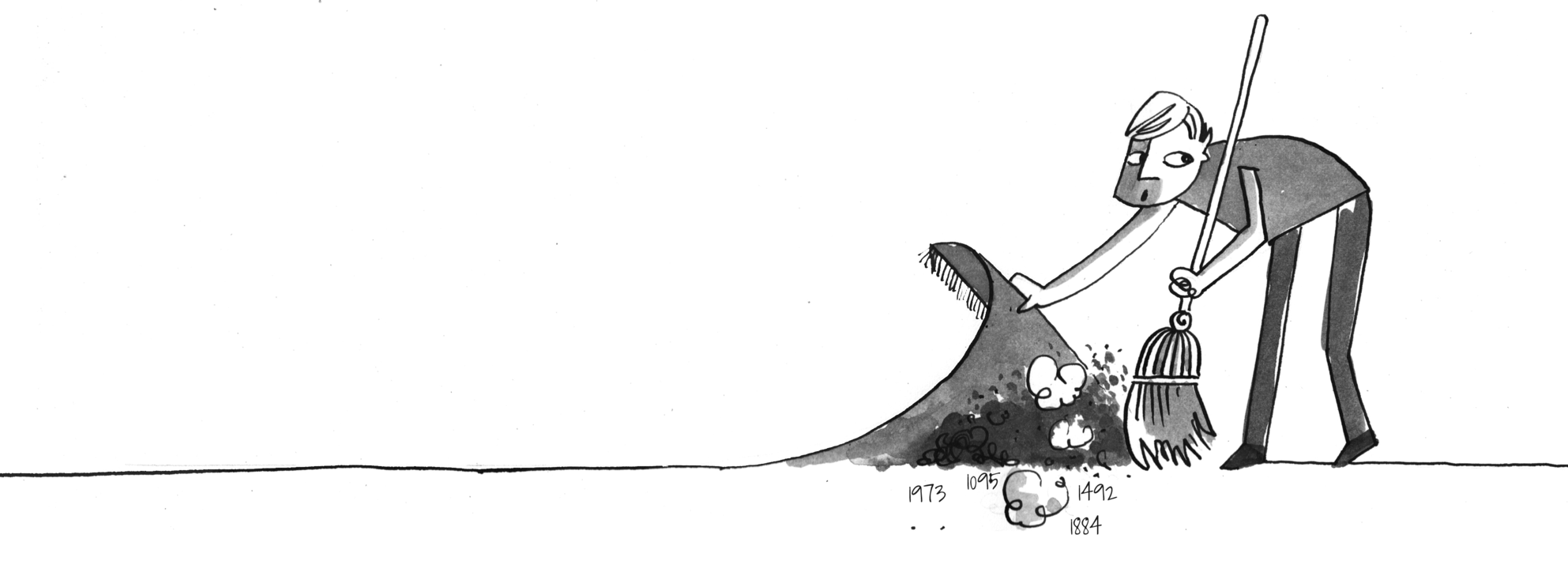History is a complex matter. This is not least because there is no one true history. On the contrary, all we have access to are incomplete historical narratives that are based on one-sided so-called facts or on potentially dubious reports about them. This makes it very difficult to understand how events that occurred centuries ago actually took place. What we do know, however, is that many very important voices have not been paid attention to and, being passed over, have been so silenced. At the same time, uncomfortable aspects of white western history are often deliberately downplayed or ignored. In German schools, for example, we do not learn that during the French Revolution, the people of Haiti also rose up, fighting for freedom and independence from France. Neither do we learn that right until the beginning of the 20th century, German social democrats thought it perfectly legitimate to debate colonialism’s pros and cons.
History and the ways in which we remember are shaped by myriad competing interests. This is evident, for instance, in the very partial way in which German colonialism is depicted in school books (Schulbuchstudie Migration und Integration 2015: 63). Similarly, public discourse about the demolition of the Palast der Republik in Berlin and the reconstruction of the feudal Berlin City Palace (which includes an anthropological collection from the Humboldt Forum that was assembled thanks to German colonialism) are examples of how dominant history dictates what we should remember and what we should delete or forget (www.no-humboldt21.de).
So we ask: How can we retrieve (hi)stories, read them, remember them, make them heard, teach them and use them in our sketches of the future?
Here at glokal we believe that history is by no means concluded or ‘over’. The past is definitely not behind us and historical memory is a field of living contradictions. It is this conviction that led us to develop the eLearning tool and its related publication Connecting the Dots – Learning From (Hi)stories About Oppression And Resistance. Through these tools, we ask: What are history and historiography, and who, to this day, have been the ones writing history and who have not? Which stories have been left out or have been told only from a dominant perspective? Which (hi)stories can we communicate in the context of education and how? What methodologies do we need for this job?
There are of course potential pitfalls in the narration of counter(hi)stories. For instance, when we describe counter-histories, are we romanticising resistant perspectives, presenting them as if they were all identical? Are we trapped in the oversimplified opposition between resistant colonised peoples on the one hand and oppressive coloniser on the other? And does our investigation of such categories constrict our imaginations, making it more difficult to defeat these oppositions?
Through the timeline of quotations, we want Connecting the Dots to underline the fact that powerful and dominant concepts are not natural but have been constructed. Above all, we want to draw attention to the resistance and alternatives that have existed throughout the ages.
“human history is not only a history of barbarism, but also a history of compassion, of sacrifice for others, of courage, of kindness (…) If we only see the worst, it destroys our ability to do something” (Howard Zinn 2006: A Power Governments Can not Suppress, S. 270).
Connected Stories: Connecting the Dots
Connecting the Dots extends the critical timeline method that glokal has been developing during the course of the last decade. Over the years, we have collected many quotations by people from diverse eras and parts of the world, who express different perspectives on class, gender, sexuality and race. We hope that circulating these many perspectives on history will contribute to: the rewriting of (hi)stories, processes of learning and unlearning; inspiring us to get active in resistant history-making and last but not least, involving ourselves more fully in the making of our present.
Connecting the Dots consists of ten themed timelines on colonialism, racism in Germany, humans and nature, labour, capitalism, democracy and power, culture, migration and flight, gender and sexuality, and development. The eLearning tool is open to contributions and we encourage you to send us quotations and comments so that we can build an even bigger foundation for decolonized, resistant and emancipatory archives!
Every quotation is accompanied by short biographies, guides for interpretation and recommendations for further reading. For your educational practice, you can find more material on each topic on our website www.mangoes-and-bullets.org either by using the relevant tag (e.g. capitalism, gender, or colonialism) or through the search function.
In the brochure Connecting the Dots you will find suggestions for working with the timeline quotations in schools or during political education activities. Also included are background information and interviews on some of the timeline topics.
We look forward to receiving feedback, whether positive or negative, from your experiences of using the tools. We would also love to work with you on your subjects of interest in a workshop or advice session.
Wishing you an inspiring journey,
The glokal team
